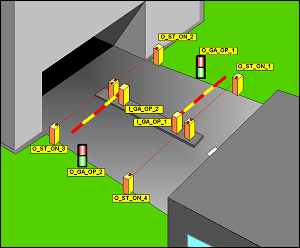
But our meetings are not virtual, the learning and training we provide are actual, and the interactions we have online are real. We may meet in a virtual room or craft products on a virtual platform. Instead, the word should reflect the objects that are really virtual. I’m not suggesting that we can’t use the word at all. To Sum UpĪnd a special note to those that are saying but some things ARE virtual. By reframing the language we use, we can help to reshape the preconceived notion that online interactions are not actual. It’s not wishing we could do this in person, it’s delighting in the potential to reach people through the internet or device. It’s not converting in-person content, it's developing online experience. Let’s stop calling some of them virtual just because participants are not all in the same physical room. Let’s start thinking about all interactions as actual. Let’s frame online interactions altogether differently.

So to all of you involved in eLearning, I’d like to ask you to join me with a change in our language. Yet, by speaking this way, we end up perpetuating the barriers to our own work by belittling the online experience. There are times we may find ourselves agreeing with a negative perception just to ease the process or joining in the lament of interaction happening "virtually", or not in-person.

And the language we use plays a large role in this process! How This Can Actually ChangeĮven for ourselves, as eLearning professionals, it’s good to examine the perceptions we have, and/or the ways we may perpetuate negative perceptions of online interactions in our discourse. For these reluctant collaborators, I’ve found that the task before my team is not just to develop the course, product or environment but also to help change perceptions of online experiences. I have found that there are just as many people excited to engage in this work as there are people who are not at all thrilled with the prospect. Personally, I have worked with experts from many fields to deliver numerous online trainings and to create spaces for interaction. Indeed, shaping a friendly perception towards online education is helpful in all sectors, not just higher ed. Within higher education, for example, studies are showing that just fostering faculty’s acceptance of online courses is a critical factor to their success. The perception of technology can be just as strong (or even stronger) a barrier to the task of creating online content. By conceptualizing online products or events as not-actual, the eLearning team can face the uphill battle of having to convince their own stakeholders, Subject Matter Experts, or other contributors that the result will be meaningful and worthy of the effort. This unintentional connotation can make the job of developing and delivering meaningful online experiences even more difficult and at times near impossible. When online interactions are called "virtual", they enter our mental framework as not actual. Online interactions can be perceived as lesser versions of in-person interactions, lamentable adaptations of in-person events, or poor substitutes for "real" engagement. How The Specific Confusion Complicates Professionals' JobĪs an online learning producer, I often deal with the unfortunate perception that comes with calling online interactions virtual.

Without necessarily meaning to (though, perhaps, some do mean it), when we say something is virtual, we are also saying that it is essentially not actual. One that is best understood when we consider that the antonym to virtual is "actual". Yet, there is another meaning to the word. Understood this way, "virtual" seems an appropriate distinction from in-person events, engagements, and interactions. We use it to define an interaction that does not take place in an in-person physical environment. In common use, when we use the word "virtual", we tend to mean online, that is through a computer or device. In online education, we talk about virtual classes, virtual schools, virtual conferences, etc. In the workplace, we often talk about having virtual meetings or virtual events. "Virtual" - It’s a word that has maneuvered its way into many of our daily conversations in the digital age and in eLearning. Why eLearning Professionals Should Distinguish Online From Virtual Interactions


 0 kommentar(er)
0 kommentar(er)
